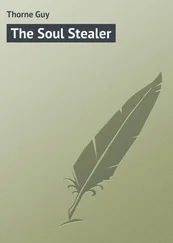Guy Thorne - The Drunkard
Здесь есть возможность читать онлайн «Guy Thorne - The Drunkard» — ознакомительный отрывок электронной книги совершенно бесплатно, а после прочтения отрывка купить полную версию. В некоторых случаях можно слушать аудио, скачать через торрент в формате fb2 и присутствует краткое содержание. Жанр: foreign_prose, на английском языке. Описание произведения, (предисловие) а так же отзывы посетителей доступны на портале библиотеки ЛибКат.
- Название:The Drunkard
- Автор:
- Жанр:
- Год:неизвестен
- ISBN:нет данных
- Рейтинг книги:5 / 5. Голосов: 1
-
Избранное:Добавить в избранное
- Отзывы:
-
Ваша оценка:
- 100
- 1
- 2
- 3
- 4
- 5
The Drunkard: краткое содержание, описание и аннотация
Предлагаем к чтению аннотацию, описание, краткое содержание или предисловие (зависит от того, что написал сам автор книги «The Drunkard»). Если вы не нашли необходимую информацию о книге — напишите в комментариях, мы постараемся отыскать её.
The Drunkard — читать онлайн ознакомительный отрывок
Ниже представлен текст книги, разбитый по страницам. Система сохранения места последней прочитанной страницы, позволяет с удобством читать онлайн бесплатно книгу «The Drunkard», без необходимости каждый раз заново искать на чём Вы остановились. Поставьте закладку, и сможете в любой момент перейти на страницу, на которой закончили чтение.
Интервал:
Закладка:
That curly-headed youth, who was a Pembroke man and knew the ritual of the Johnsonian Common Room at Oxford, gravely filled his own glass and pushed the bottle to Herbert Toftrees, who was in the vacated seat of his hostess, and pouring a little Perrier water into a tumbler.
The butler lifted the wicker-work cradle with care, passed behind Toftrees, and set it before Gilbert Lothian.
Lothian looked at it for a moment and then made a decisive movement of his head.
"Thank you, no," he said, after a second's consideration, and in a voice that was slightly high-pitched but instinct with personality – it could never have been mistaken for any one else's voice, for instance – "I think I will have a whiskey and soda."
Toftrees, at the end of the table, within two feet of Lothian, gave a mental start. The popular novelist was rather confused.
A year ago no one had heard of Gilbert Lothian – that was not a name that counted in any way. He had been a sort of semi-obscure journalist who signed what he wrote in such papers as would print him. There were a couple of novels to his name which had obtained a sort of cult among minor people, and, certainly, some really eminent weeklies had published very occasional but signed reviews.
As far as Herbert Toftrees could remember – and his jealous memory was good – Lothian had always been rather small beer until a year or so back.
And then "Surgit Amari" – the first book of poems had been published.
In a single month Lothian had become famous.
For the ringing splendour of his words echoed in every heart. In this book, and in a subsequent volume, he had touched the very springs of tears. Not with sentiment – with the very highest and most electric literary art – he had tried and succeeded in irradiating the happenings of domestic life in the light that streamed from the Cross.
".. Thank you, no. I think I will have a whiskey and soda."
CHAPTER II
GRAVELY UNFORTUNATE OCCURRENCE IN MRS. AMBERLEY'S DRAWING ROOM
"Μιοω μνημονα ουμποτην, Procille."
– Martial.– "One should not always take after-dinner amenities au pied de la lettre."
– Free Translation.Toftrees, at the head of the table, shifted his chair a little so that he was almost facing Gilbert Lothian.
Lothian's arresting voice was quite clear as he spoke to the butler. "That's not the voice of a man who's done himself too well," the novelist thought. But he was puzzled, nevertheless. People like Lothian behaved pretty much as they liked, of course. Convention didn't restrain them. But the sudden request was odd.
And there was that flourishing bow as the women left the room, and certainly Amberley had seemed to look rather strangely at his guest. Toftrees disposed himself to watch events. He had wanted to meet the poet for some time. There was a certain reason. No one knew much about him in London. He lived in the country and was not seen in the usual places despite his celebrity. There had been a good deal of surmise about this new star.
Lothian was like the photographs which had appeared of him in the newspapers, but with a great deal more "personality" than these were able to suggest. Certainly no one looked less like a poet, though this did not surprise the popular novelist, in an age when literary men looked exactly like every one else. But there was not the slightest trace of idealism, of the "thoughts high and hard" that were ever the clear watchwords of his song. "A man who wears a mask," thought Herbert Toftrees with interest and a certain half-conscious fellow-feeling.
The poet was of medium height and about thirty-five years of age. He was fat, with a broad-shouldered corpulence which would have been far less noticeable in a man who was a few inches taller. The clean-shaven face was fattish also, but there was, nevertheless, a curious suggestion of contour about it. It should have been a pure oval, and in certain lights it almost seemed that, while the fatness appeared to dissolve and fall away from it. It was a contour veiled by something that was, but ought not to have been, there.
The eyes were grey and capable of infinite expression – a fact which always became apparent to any one who had been half an hour in his company. But this feature also was enigmatic. For the most part the eyes seemed to be working at half-power, not quite doing or being what one would have expected of them.
The upper lip was short, and the mouth by far the most real and significant part of the face. It was small, but not too small, clearly and delicately cut though without a trace of effeminacy. In its mobility, its sensitive life, its approach to beauty, it said everything in the face. Thick-growing hair of dark brown was allowed to come rather low over a high and finely modelled brow, hair which – despite a natural luxuriance – was cut close to the sides and back of the head.
Such was Toftrees' view of Gilbert Lothian, and it both had insight and was fair. No one can be a Toftrees and the literary idol of thousands and thousands of people without being infinitely the intellectual superior of those people. The novelist had a fine brain and if he could have put a tenth of his observation and knowledge upon paper, he might have been an artistic as well as a commercial success.
But he was hopelessly inarticulate, and æsthetic achievement was denied him. There was considerable consolation in the large income which provided so many pleasures and comforts, but it was bitter to know – when he met any one like Lothian – that if he could appreciate Lothian thoroughly he could never emulate him. And it was still more bitter to be aware that men like Lothian often regarded his own work as a mischief and dishonour.
Toftrees, therefore, watched the man at his side with a kind of critical envy, mingled with a perfectly sincere admiration at the bottom of it all.
He very soon became certain that something was wrong.
His first half-thought was a certainty now. Something that some one had said to him a week ago at a Savage Club dinner – one of those irresponsible but dangerous and damaging remarks which begin, "D'you know, I'm told that so and so – " flashed through his mind.
"Are you in town for long, Mr. Lothian?" he asked. "You don't come to town often, do you?"
"No, I don't," Lothian answered. "I hate London. A damnable place I always think."
The other, so thorough a Londoner, always getting so much – in every way – out of his life in London, looked at the speaker curiously, not quite knowing how to take him.
Lothian seemed to see it. He had made the remark with emphasis, with a superior note in his voice, but he corrected himself quickly.
It was almost as though Toftrees' glance had made him uneasy. His face became rather ingratiating, and there was a propitiatory note in his voice when he spoke again. He drew his chair a little nearer to the other's.
"I knew too much of London when I was a young man," he went on with an unnecessarily confidential and intimate manner. "When I came down from Oxford first, I was caught up into the 'new' movement. It all seemed very wonderful to me then. It did to all of us. We divorced art from morals, we lived extraordinary lives, we sipped honey from every flower. Most of the men of that period are dead. One or two are insane, others have gone quite under and are living dreadful larva-like lives in obscene hells of the body and soul, of which you can have no conception. But, thank God, I got out of it in time – just in time! If it hadn't been for my dear wife .."
He paused. The sensitive lips smiled, with an almost painful tenderness, a quivering, momentary effect which seemed grotesquely out of place in a face which had become flushed and suddenly seemed much fatter.
There was a horrible insincerity about that self-conscious smile – the more horrible because, at the moment, Toftrees saw that Lothian believed absolutely in his own emotion, was pleased with himself sub-consciously, too, and was perfectly certain that he was making a fine impression – pulling aside the curtain that hung before a beautiful and holy place!
Читать дальшеИнтервал:
Закладка:
Похожие книги на «The Drunkard»
Представляем Вашему вниманию похожие книги на «The Drunkard» списком для выбора. Мы отобрали схожую по названию и смыслу литературу в надежде предоставить читателям больше вариантов отыскать новые, интересные, ещё непрочитанные произведения.
Обсуждение, отзывы о книге «The Drunkard» и просто собственные мнения читателей. Оставьте ваши комментарии, напишите, что Вы думаете о произведении, его смысле или главных героях. Укажите что конкретно понравилось, а что нет, и почему Вы так считаете.












